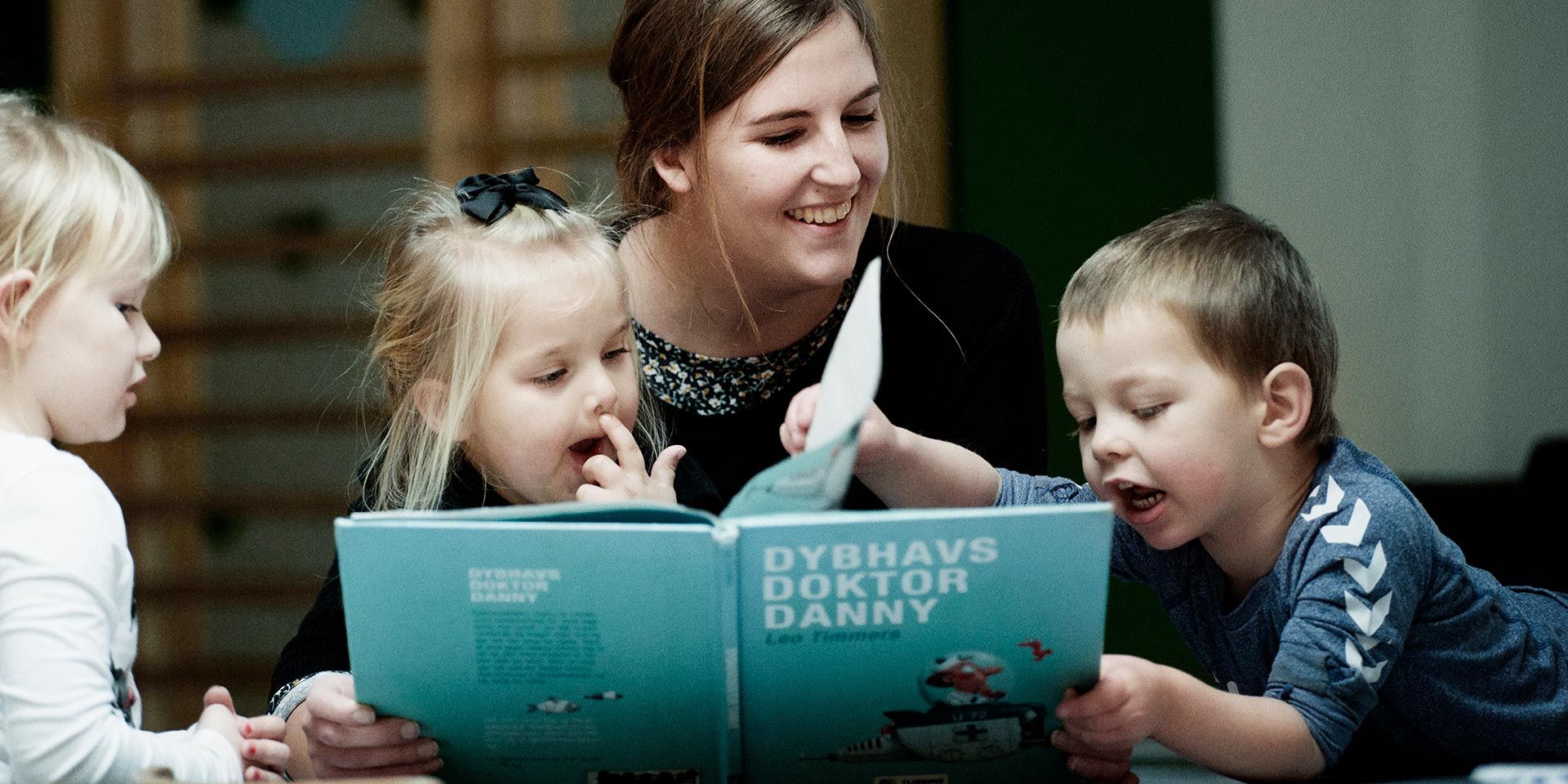British nurseries are a lot like prisons. There is a big fence around the outside, a special security door with a code that only parents/staff know, and plenty of cameras. You know when you’re outside a nursery in Britain and, quite frankly, you’re relieved.
Mormor rapport
In contrast, a Danish vuggestue is a very hyggelig experience. Usually a casual, quaint and unassuming cottage tucked between standard buildings, it will have red bricks, wooden window frames and a bicycle parked outside.
From the street you might think you’re just outside the house of a kind old lady: a kind old mormor called Birgitte.
It’s only when the front door is open that you realise your mistake. Because Birgitte is not inside, it is full of children – smiling, screaming and running around. This isn’t a grandmother’s home, this is a vuggestue!
Tuppence a baby!
I have always been amazed by the level of trust in this society, and never more so than at a vuggestue. No cameras, no locks, you could just walk off the street, grab ten children and nobody would notice.
Even walking around inside you’re not sure who all the adults are. Are these people pædagoges? Parents? Random strangers from the street? Every institution feels like a mini Freetown Christiania where anyone can just wander in for a warm meal and a place to sleep.
Certainly you could find a large pram, as the vuggestue has hundreds of barnevogn, kept in enormous rooms that resemble Victorian-era baby markets. Take your pick from a fresh sea of sleeping babies – just MobilePay if there’s no staff to take your purchase.
Virus-killing machines
Pedagogues are the most incredible people. I honestly salute them. Not because their job is not good, but because it looks incredibly hard. They work diligently with a crowd of small, noisy, emotional people every day and they keep smiling.
That said, you will definitely see some changes over time. When you meet a new pædagogue on day one, they are fresh. Very fresh. Three months into the job and they look like they have just returned from the Roskilde Festival.
The pandemic was particularly hard on pedagogues. Everyone else lived in fear, wearing the mundbind and sanitising their hands, but not the pedagogues, even amid the small but potent coughs and sneezes on the frontline.
The staff at these institutions have the most incredible natural immune systems, carrying the kinds of viruses that have COVID-19 for breakfast. Who’s afraid of the wet markets of Wuhan when you’ve braved the wet noses of kids in a børnehave.
Exits like Mary Poppins
It’s clear that pædagoger love their jobs but they also love to go home. Danes are generally very good at finishing on time, but pedagogues are the masters. The moment the clock hits the hour, they will drop everything, including a child, and make their way to the exit. I have never seen someone leave a building so quickly. It is like something from a bank heist.
If you’re ever talking to a pædagogue in the final minutes leading up to the end of their shift, they will smoothly and expertly shuffle themselves (and you) towards the exit. Getting all of you outside they will seamlessly close the door, a bicycle will appear like magic, and they’ll disappear down the road like a Scandinavian Mary Poppins.
So next time you walk past an old building in town, one you always assumed was occupied by a kind old grandmother, stop to take a look inside and see if there isn’t a friendly pedagogue reading Rasmus Klump to a crowd of children with wet noses.


